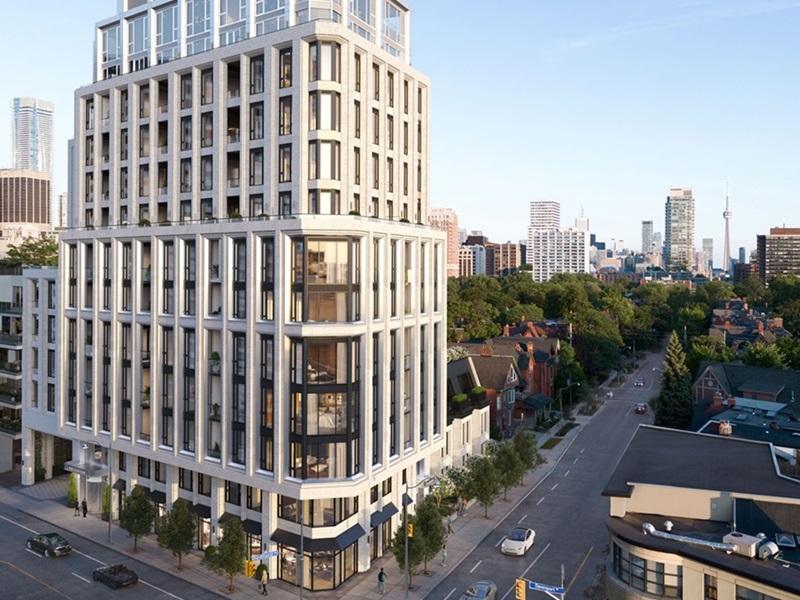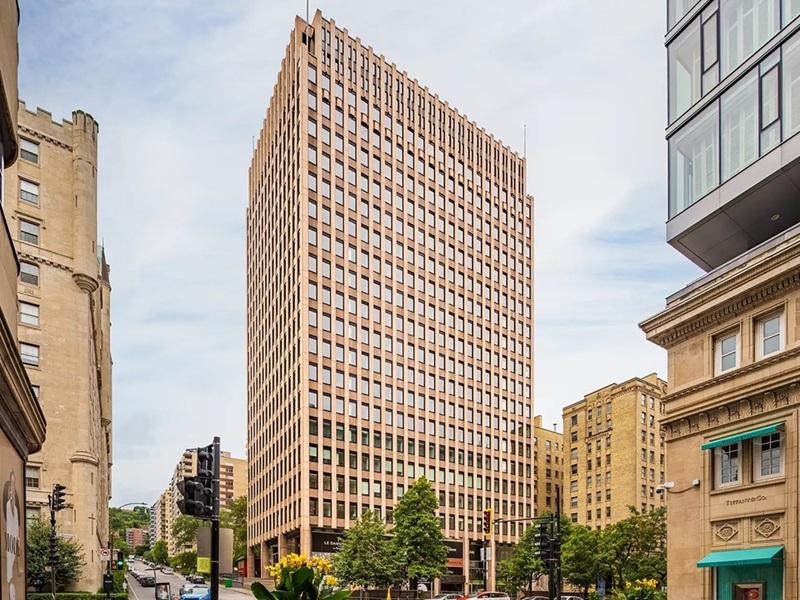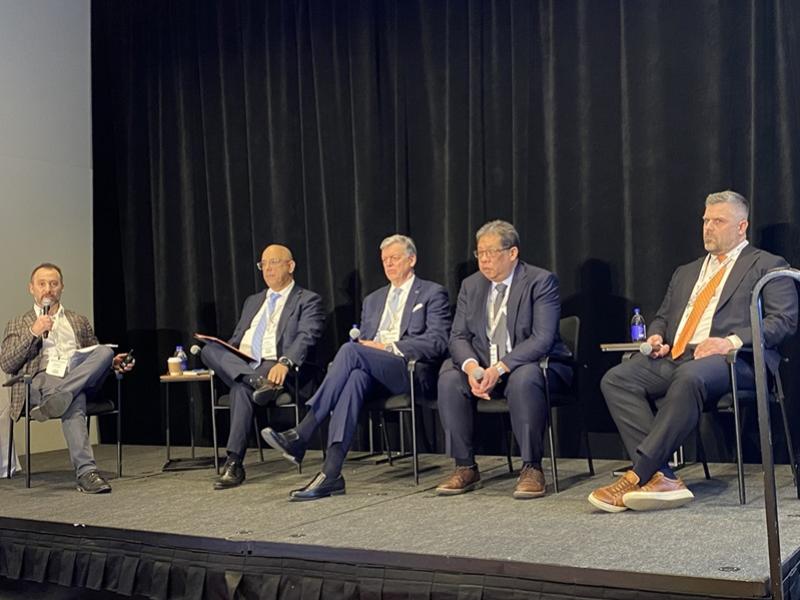
Robert Giglio, vice-president, leasing at Broccolini. (Courtesy Broccolini)
Montreal industrial rents, which long stagnated at an average of $5 per square foot, could soon see Toronto-like asking prices in the $20 range, industrial developers and brokers say.
“In Toronto, we’re seeing rates in the $20 range, and Montreal is usually about 13, 14 months behind,” noted Robert Giglio, vice-president, leasing at Broccolini.
Twenty dollars will become the new $5 for rental rates in Montreal, he said.
Giglio was one of the speakers during a session on the region’s industrial market during the Montreal Real Estate Forum on June 2.
Montreal industrial rental rates flatlined at $5 to $6 per square foot for 10 to 15 years, but started to rise slowly in 2019 and have exploded in the past few quarters, said Béatrice Roquet, vice-president in the Montreal office of Colliers.
“Montreal is finally catching up to the other major markets in terms of rents,” she said.
“Dramatic impact” on industrial tenants
Roquet said Colliers’ numbers indicate average industrial rental rates in Montreal in Q1 2022 were just under $12 per square foot and will be at close to $13 for Q2. However, “we’re starting to see asking rates at $17, $18, even $19.”
The sudden increase has had “a dramatic impact” on tenants, said Giglio. “When it comes to renewals, we often get the deer-in-the-headlights look. ‘What do you mean you want that much?’ We kind of have to educate them on what the market availabilities are.”
To help cushion the blow of going from rents of $5 to easily triple that amount, Gil Kastner, chief leasing officer at Brasswater, said he provides market intelligence from independent sources to clients to let them see what the market is like. “We actually encourage them to go out and see space elsewhere.”
He added “rates are going to go much higher than they are right now.”
Kastner said that “for 30 years, you asked an industrial guy what’s the rent and the answer is always the same: $5.” When the rates started to increase to $6, the instinct was to nail down long-term, 10-year deals, under the thinking the rates would not hold.
Now “we’re kicking ourselves for it.”
Various leasing strategies in play
Tenants “who are going through this shock-and-awe process” of high rents are now trying to get short-term deals, because they’re hoping rents will collapse. “They haven’t figured out long-term deals are actually protecting them.”
Roquet said some landlords are leaving spaces empty, knowing they can get higher rents if they wait. However, RoseFellow co-CEO Sam Tsoumas said he is a firm believer in doing the deal you can do.
“A deal’s a deal. You never know what’s going to happen,” he said. “Fill up your space and move on.”

Sam Tsuomas is co-CEO and co-founder of RoseFellow in Montreal. (Courtesy RoseFellow)
Industrial land prices are also increasing dramatically and “I don’t think there’s a ceiling” on prices on the island of Montreal, Tsoumas said.
He noted RoseFellow recently purchased a site on the West Island for $30 per square foot “and everybody was telling us we’re crazy. On that very site, we got offered recently almost $90 bucks a foot from a user to redevelop the site for themselves.”
Tsoumas noted RoseFellow will have three million square feet of industrial land under construction on the island of Montreal. However, land on the island “is harder to find; you have to turn over every stone. (But) I’m a firm believer that on-island is still the leading node and (you) use the periphery as your backup.”
Potential Montreal-area growth regions
Asked what off-island industrial areas are seeing growth, Kastner cited Valleyfield, where Brasswater is constructing two buildings.
“We really like Valleyfield because it’s in between the port and the intra-modal. It’s right on the distribution network between east and west.” he said.
He also named Delson on the South Shore and St. Eustache on the North Shore as sites for new developments.
“The Montreal-Toronto corridor is going to continue to grow and the South Shore for sure,” Giglio said, adding he is also seeing a push northward.
Labour shortages, data centres
Kastner added potential labour shortages are becoming an important factor when evaluating new industrial sites.
“When we’re looking at land now, part of the value of land is, ‘Who can work around here?’ ” he noted. “I’ve never heard the question asked so many times during a tour: ‘Does anyone in this neighbourhood want to work?’ ”
David Cervantes, senior vice-president of CBRE in Montreal, said the Montreal-area data centre market could easily triple in size. Demand is also growing from other high-energy users such as battery manufacturers, who covet the province’s hydro-electricity market.
Quebec “is in a very privileged position,” he said, noting “there’s an arms race for our power.”
Cervantes said data centres are moving off the island of Montreal to places like Beauharnois (Google) and Varennes (Amazon Web Services). “We’re going to see the high-powered industrial groups clustered together off-island with power grids,” he said.











